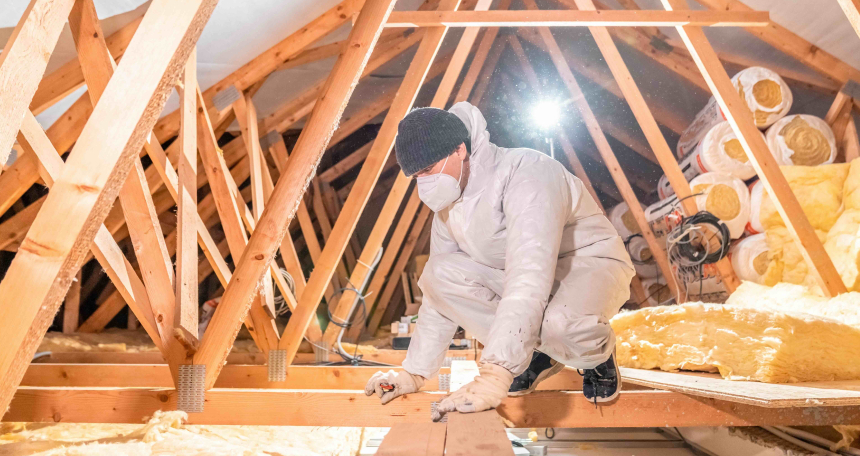
The HomeOwners Alliance have joined forces with national trade body Property Care Association to call for action on spray foam insulation.
Currently around 250,000 UK homes have spray foam insulation – but many homeowners are finding they can’t now sell their property. Spray foam is difficult and expensive to remove once applied, with some vulnerable householders targeted by rogue removal firms.
The problems and costs involved are so significant that HomeOwners Alliance has issued a warning to homeowners to NOT install spray foam for the time being. Recent research conducted by HomeOwners Alliance and the BBChighlighted how only 25% of mortgage lenders, and no equity release providers, will lend on properties that have spray foam installed as a retrofit measure.
Householders struggling to sell, or unable to release equity, also face being targeted by rogue spray foam removal firms and legal firms wanting to pursue cases of mis-selling.
Paula Higgins, Chief Executive at HomeOwners Alliance, said:
“The ECO4 grant and Great British Insulation Scheme (GBIS) both fund the installation of spray foam to eligible households. It can’t be that homeowners convinced to install spray foam at a significant personal financial cost, and in many cases with help of government grants, are now faced with bills for hundreds if not thousands of pounds to remove the product - far exceeding the original installation costs - in order to be accepted by lenders or release equity from their homes.
“We also call on the government’s assistance to stamp out the rogue spray foam removal companies who are scaring homeowners to remove the insulation and are causing even further damage to their homes.”
In a joint letter to Miatta Fahnbulleh Minister for Energy Security and Net Zero and Ali Rushanara MP, Minister for Ministry of Housing, Communities & Local Government, the two organisations have asked for a roundtable discussion on the issue of spray foam insulation.
The PCA has created an inspection protocol and set out a register of surveyors providing assurance to residents and lenders that the surveyors assessing homes where spray form has been installed were adequately trained and audited, but concerns persist over installation.
Sarah Garry, Chief Executive of the PCA, said: “In 2023 the PCA worked with lenders and building experts to create our Sprayed Foam Inspection Protocoland early last year created a register so homeowners and lenders could be assured that the people assessing the spray foam had the appropriate training. We understand lenders are concerned that different types of sprayed polyurethane foam can lead to trapped moisture and that the inability of moisture to escape can cause mould, damp and timber decay. These are the same problems as with solid wall insulation. But even when installed by legitimate firms and with the correct paperwork, lenders are still reluctant to lend where spray foam is present. We ask the government to bring together a roundtable of specialist property experts, lenders and equity release companies, to agree whether spray foam should continue to be included within government grants and to agree a process to support homeowners who have spray foam installed.
